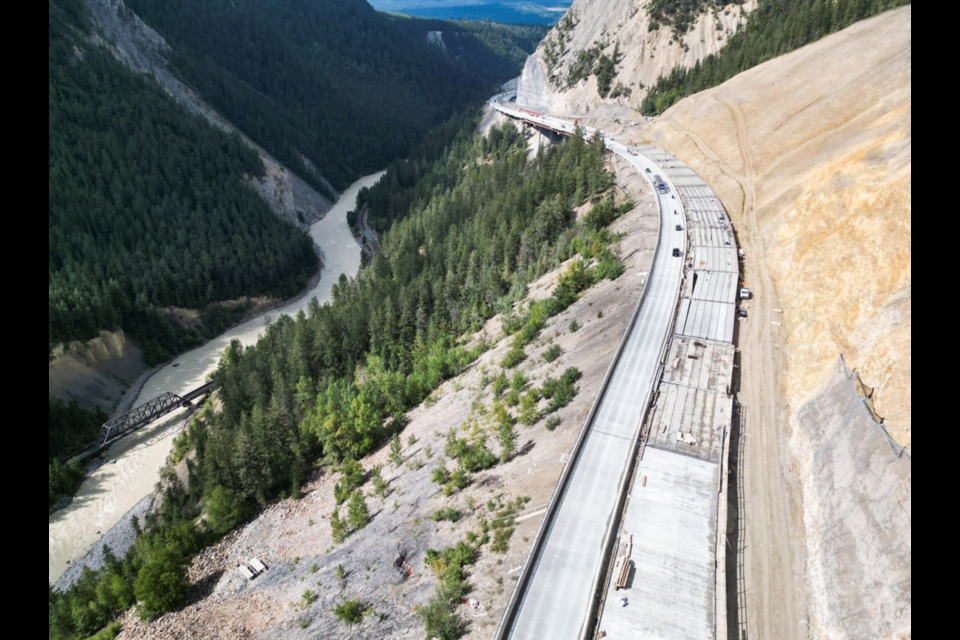GOLDEN, B.C. – A major construction project along the Trans-Canada Highway near Golden, B.C. is in the final stages following several hundred million in costs and years of work.
A 4.8-kilometre section of the Trans-Canada Highway known as Kicking Horse Canyon had its four lanes reopen Nov. 30 to largely complete phase four of a massive construction project.
“Three phases of work have previously transformed 21 kilometres of narrow, winding two-lane highway into a modern four-lane 100-kilometre per hour standard,” states the Kicking Horse Canyon website. “Major construction of the fourth and final phase to complete the remaining – and most difficult – 4.8 kilometres began in early 2021.”
The project has caused significant disruptions to traffic while the work has been completed. Throughout the fourth phase, it involved traffic stops ranging from 20 minutes, overnight stoppages and multi-day closures to finish the project.
Among the improvements were realigning 13 curves, widening the highway to four lanes, placing a median barrier and building a wider shoulder. In addition to the twinning, the work is designed to mitigate the risk of avalanche and rock slides.
The stretch of highway has more than 10,000 vehicles a day in the summer season, while up to 30 per cent of the traffic is commercial vehicles.
The first phase began on the Yoho National Park and B.C. border, continuing up to Golden where the project will finish. The first phase twinned 3.2 kilometres of highway near Yoho Bridge and was finished in 2006.
The second phase was 5.8 kilometres of twinning by Park Bridge and was completed in 2007, while the third phase east was a four-land upgrade from Brake Check to Yoho National Park and wrapped up in 2011.
The third phase west from Golden Hill to West Portal finished in 2013 in the lead-up to the fourth phase.
The upgrades between Golden and the Yoho National Park border cost roughly $600 million and are part of a twinning project from Kamloops to the Alberta border in the Canadian Rocky Mountains.
The costs are split with the federal government contributing $215.2 million and the British Columbia government adding the remaining $385.6 million.
Minor closures will continue to take place in the spring when wildlife fences, paving, line painting and landscaping take place.
The road will have a 100 kilometre-per-hour speed limit, but until the spring it will remain 80km/h when all work is completed, according to a media release from the B.C. government.
“Motorists are reminded to be prepared for winter, drive appropriately for the conditions and be alert to the presence of wildlife,” stated a release from the B.C. government.




